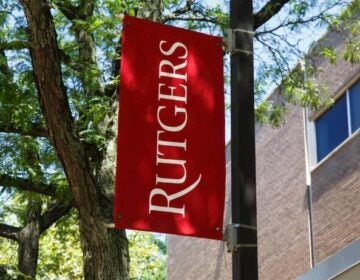N.J. education advocates to Duncan: State’s waiver plan is a disaster.
This is commentary from Darcie Cimarusti.
The debate over No Child Left Behind (NCLB) continues in New Jersey, this time over whether the state’s new plan to meet federal education standards does enough to help the state’s lowest performing schools. The Garden State has received a waiver from NCLB mandates, and a chance to come up with its own plan.
In a letter to U.S. Secretary of Education, Arne Duncan, a number of advocates called on the federal government to suspend the NCLB waiver given to New Jersey. The signers of the letter sent a clear message to Secretary Duncan that New Jersey’s plan of carrots and sticks is heavily weighted against minorities, stating “this classification system harks back to the days when such segregation and inequity were policy objectives for our State.”
New Jersey’s plan
In February of this year, New Jersey was one of ten states to be awarded a “waiver” from many of the mandates in the NCLB legislation. States were granted waivers in exchange for state level accountability based reforms focusing on the lowest performing schools.
With the waiver in hand, the New Jersey Department of Education announced it would develop a system where standardized test scores and graduation rates were used to categorize schools into three groups, “Priority” “Focus” and “Reward.”
75 Priority Schools were indentified as the “lowest-performing five percent of Title I schools across the state using proficiency, growth, and graduation rates.”
183 Focus schools were identified “based upon achievement gaps between subgroups and low performance or graduation rates among particular subgroups.”
And finally, 122 Reward Schools were identified “based on high proficiency levels or high levels of growth, including progress toward closing achievement gaps.”
Under this new system, if the 258 Priority and Focus Schools do not improve in two years, they will face sanctions very similar to NCLB, such as closure or charter conversion, while Reward Schools will receive increased autonomy and additional funding.
Regional Achievement Centers (RACs) have been set up all over the state, with some of the funding coming from private donors such as the Broad Foundation, to oversee and “turn around” the Priority and Focus Schools, and potentially take over the management of the schools that don’t improve within the two year time limit.
Professor Bruce Baker of the Rutgers University Graduate School of Education has mapped out the Priority, Focus and Reward schools. His work graphically demonstrates that the vast majority of Priority Schools are concentrated in New Jersey’s largest, poorest, urban communities while Focus Schools tend to be in and around those communities. Reward Schools however are scattered throughout the states more affluent communities.
New Jersey’s plan relies almost exclusively on the same methods that failed to raise achievement under NCLB to “turn around” the 258 targeted schools that serve our state’s most vulnerable students.
Why waivers are given
NCLB, signed into law in 2002, has been widely criticized by prominent figures in education, even those who are on opposite sides of most education debates. Education historian Diane Ravitch, a vocal critic of what she calls the ‘corporate reform movement’, dubbed NCLB the “Death Star of American Education,” while Secretary Duncan himself called NCLB “a slow-motion train wreck.”
Congress had the opportunity to overhaul the legislation in 2007 when it came up for reauthorization, but was unable to achieve consensus. In 2011 President Obama tasked Congress with rewriting the legislation, but once again, no progress was made.
NCLB set what has been called a utopian goal of 100% proficiency for all students in reading and math by 2014. NCLB requires schools to test all children in grades 3-8 annually and once in high school, and disaggregate the data by subgroups, accounting for race, ethnicity, income, etc.
Schools then must demonstrate that students in all subgroups are making Annual Yearly Progress (AYP) towards the goal of 100% proficiency. If AYP is not met, a school is labeled a School in Need of Improvement (SINI), and each year a school receives this label it faces increasingly severe consequences.
If any subgroup in a school fails to make AYP for five years in a row, the school faces any of several forms of “restructuring” including conversion to a charter school, replacement of staff or closure.
As 2014 approaches, rather than coming closer to the goal of 100% proficiency, more and more public schools are not meeting AYP. By 2011 48% of our nation’s schools failed to do so, compared to 38% in 2010 and 33% in 2009. 50% of New Jersey schools didn’t make AYP in 2011, but in Massachusetts, the state that boasts the top public school system in the country, 81% failed to do so.
With Congress unable to act to rewrite the legislation, and more schools labeled failures each year, Secretary Duncan offered states waivers from the onerous requirements of NCLB, amid speculation as to whether he had the legal authority to do so.
Groups across the state still signing on
Education advocates across the state continue to add their names to the letter asking for the suspension of the NCLB waiver. They’re signing because they understand that the system the state has adopted will inevitably result in the destruction of the public schools in our most vulnerable communities without offering any viable alternatives to improve outcomes for all students.
Darcie Cimarusti is member of the Highland Park Board of Education in New Jersey. She is also a member of Save our Schools NJ. She is the founder of the blog MotherCrusader.
WHYY is your source for fact-based, in-depth journalism and information. As a nonprofit organization, we rely on financial support from readers like you. Please give today.




